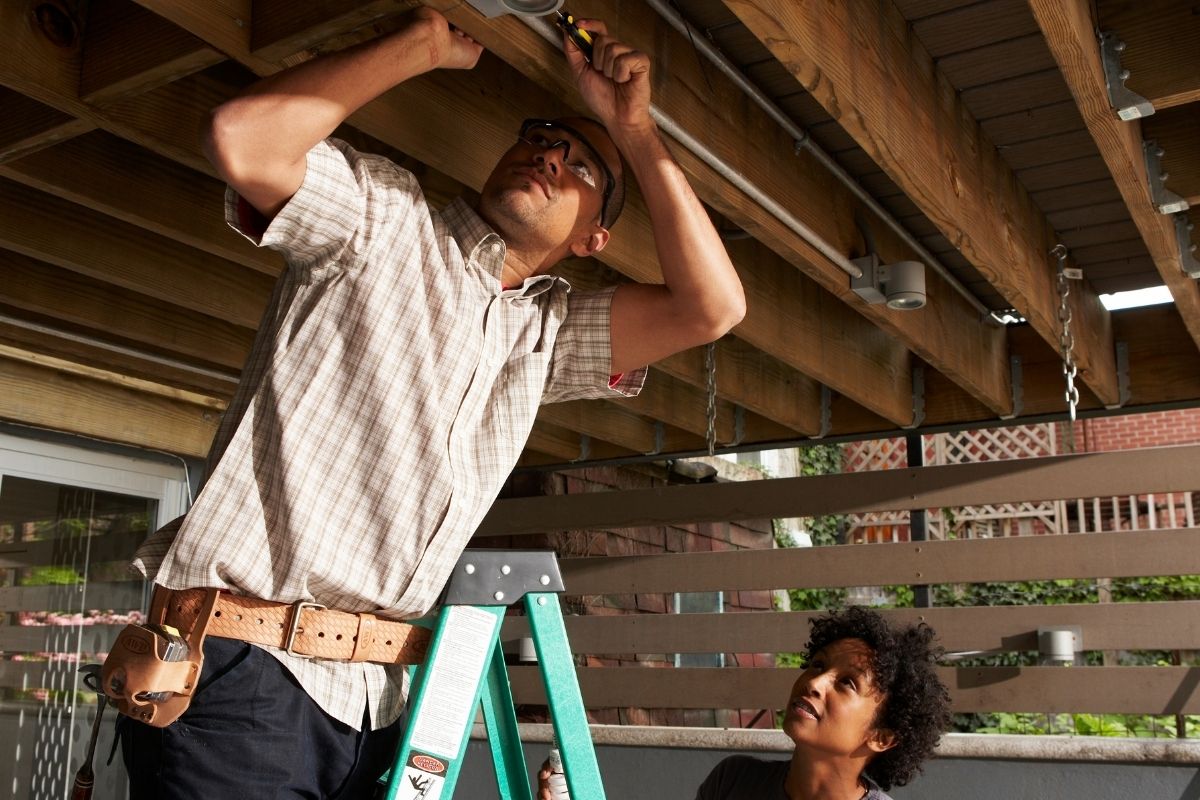One of the realities of buying a home is that even after owning a home for years, what lurks behind the walls or in the attic can still be a surprise. That’s why a home inspection is so important. This consultation, which should always be done by a qualified professional, evaluates the house’s physical condition, separate from the aesthetics. Although it’s done visually, a trained home inspector can quickly identify technical components of the home that may be dated or problematic.
This inspection reveals any potential problems that could affect the home’s value, which is why done before closing. This offers buyers the opportunity to negotiate with the sellers to help ensure that the final closing price accurately reflects the home’s physical condition.
Today, we’ll explore the home inspection process in-depth, including what buyers can expect from a standard home inspection.

While it’s essential to find a home that meets your needs in terms of size, location, and aesthetics, the most critical aspect of your home purchase is the most difficult to determine – the underlying condition of the home.
A home inspection is an essential part of the home buying process. It brings expert opinion and often identifies issues that would be impossible for a layperson to spot.
Typically, the home inspector is brought in after the final offer has been signed. Most real estate contracts include a contingency clause that allows the buyers to arrange for a home inspector, who will then verify the property’s condition.
Based on the information provided by the home inspector, the buyers may choose to continue with the deal as planned, negotiate a different price, or exit the contract. Sometimes, a re-inspection may be ordered to ensure that necessary repairs were done to a reliable, professional standard.
The entire home inspection process is beneficial to buyers. It offers them much more information than would have been available on the home’s listing or from their real estate agent.
Without this knowledge, buyers can purchase a home that’s rife with costly issues that are simply hiding behind a coat of paint. While a fixer-upper may appeal to some buyers, it’s not for everyone, and significant repairs should never come as a surprise.
Although licensing is required for home inspectors in many states, it is not a requirement in California. Despite that, buyers should look for a home inspector with qualifications from a trusted organization like the California Real Estate Inspectors Association. This ensures their expertise and can help offer a more standardized experience.
In the standard home inspection, most professionals examine the following areas:

Despite being potential issues, the following areas or concerns are not part of a standard home inspection:
Although these areas aren’t covered in a traditional home inspection, you may want to arrange for one or all of these additional inspections if the home requires it.
A trained expert inspects walls and hidden areas like HVAC systems for mold growth in a mold inspection. They may use cameras or a moisture meter. They will sometimes remove paneling or drywall to make sure there’s no mold hiding in inaccessible areas.
Average cost: $300 to $900
If your home inspector suspects there may be potential foundation issues, they will recommend a dedicated foundation inspection. This inspection is performed by a structural engineer, who conducts a forensic analysis of the current foundation to identify any issues.
Average cost: $300 to $1,000
Like a foundation inspection, a roof inspection is done by a trained roofer, who analyzes the roof’s current condition and can identify structural issues such as rotting shingles or damaged flashing.
Average cost: $290 to $350
If your home inspector notices any visible signs of a pest infestation, they may recommend a dedicated pest inspection. In this inspection, a pest professional examines the interior and exterior of the home to identify areas where pests may be entering and can determine whether there is an active infestation that needs to be addressed.
Average cost: $75 to $125
If you want to buy a home with a septic tank, it’s a good idea to arrange for a dedicated inspection before closing. This inspection examines the septic tank and attached plumbing to identify any problems that may impact the long-term viability of the septic system.
Average cost: $100 to $250
Pools and spas are a luxurious amenity in any home. Still, if they’re not appropriately maintained, a fix can be extremely costly. A pool and spa inspection help offer peace of mind that these amenities are free from problems or issues that could require expensive repairs.
Average cost: $125 to $250

When you purchase a home, you should be satisfied with the price you paid. A home inspection helps offer peace of mind before they sign the final agreement, so buyers can finalize their purchase knowing all the details of their future home. This creates more options for buyers to get a favorable deal or move on if there are too many issues in the house they chose.
Have questions about what you should expect from a home inspection? Get in touch with us today to speak with one of our agents, who can share more details about this process with you.